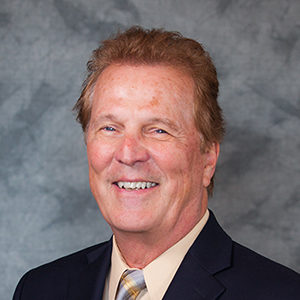 Tim Williamsen, Information Technology Manager for the City of Petaluma, has announced his retirement, effective April 20, 2020, after a 21-year career with the City of Petaluma.
Tim Williamsen, Information Technology Manager for the City of Petaluma, has announced his retirement, effective April 20, 2020, after a 21-year career with the City of Petaluma.
Williamsen, who holds a B.S. in Electrical Engineering with honors from Washington State University, began his career with the U.S. Department of Defense, where he devised methods to improve overhauls of submarines. He then designed computer-based systems for multiple applications at the Bechtel Group of Companies. After becoming a licensed professional electrical engineer in California, he owned and operated a local business that provided computer solutions for banks, insurance companies, law firms, medical offices, non-profits and wineries.
In 1999, Williamsen joined the City of Petaluma, prompted by a desire to give back to his community while supporting his family.
“As the owner of my own computer network consulting and system integration business, I often found myself still commuting home from visits with out-of-town clients at the time when I needed to pick up my son from daycare,” said Williamsen. “When I saw an ad in the paper for the job with the City of Petaluma, I thought, ‘Wow, that’ll fix the commute and I’ll have the opportunity to get / give back to my community.’”
Williamsen brought capability for the transformation Petaluma needed, beginning with Y2K work and the deployment of 250 desktops, up from an original 30. He has overseen the introduction and expansion of widespread computing, internet and email; facilitated a county-wide effort to integrate public safety dispatch, police mobile devices and records systems; migrated the city’s financial system and designed an alarm notification system, delivering not only technological transformations but also creative financial solutions.
“Transitioning our phone system was probably one of the more satisfying things that we’ve done,” he said. “It was an enormous transformation, an enormous cost savings and a real springboard.”
Under Williamsen’s direction the city’s web site moved from non-existent to a functional tool for sharing information, forms, public works bidding, and meeting agendas and minutes, and served as the precursor for the recently updated site. Williamsen also guided the City’s 2006 launch of a Technology Committee that has discussed and made numerous recommendations that have benefited staff and residents.
Throughout his leadership, the city’s information technology team garnered numerous awards for Achievement and Excellence in IT Practices from the Municipal Information Systems Association of California (MISAC) and a California-wide Digital Cities Award for Innovation. Williamsen also was recognized for Leadership in Management of Information Technology by Best of California, Digital Government.
Acting as the City’s representative, Williamsen has served on the Board of Directors for Petaluma Community Access since 2008. He also has been a chapter officer, board member, vice president and president for MISAC and volunteered for his community as a Cub Scouts assistant den leader and Sunday school assistant teacher.
Here, Williamsen shares lessons learned during his more than two decades as a local government leader.
How was your transition from the private to the public sector?
Despite the perception that government jobs are easy, I was determined not to settle for “close enough for government work.” I attended my first meeting of the Municipal Information Systems Association of California in the fall of 1999, and that networking opportunity turned into a major source of information.
What has been one of your greatest professional challenges and how did you address it?
There is a pervasive lack of understanding among executive management of the huge need to develop technology-based business practices. Without support, staffing or funding, one must draw on creativity and innovation to find solutions. I had an unwritten rule that, when an opportunity came up, I looked for a solution that solved not only the immediate problem but also one or two others. I always went for three for one.
What should municipal leaders understand about technology?
Two things: First, executives should understand that when their constituents follow the progress of technology in the outside world, they expect that the government will keep pace with that progress. Second, executives should shift their perspective to view technology as an investment and not an expense.
What is the role of information technology in upholding the public’s trust in local government?
If the public can’t communicate, they can’t trust. Technology allows outreach and dialogue to take place. It allows city hall to be open 24/7. And, with the constant demand to “do more with less,” technology provides tools with which you can do more.
What has your work in public service taught you?
Many years ago, I thought the business of information technology was easy because I had an ability to see things and learn things that, at the time, outstripped the growth and the expansion of the sector. Well, it caught up with me. This job is hard; you don’t want to do it by yourself. If you have relationships with other professionals—as I have through my participation in the Municipal Information Systems Association of California (MISAC)—you have resources. If you have a problem, chances are somebody else in California already faced and solved that problem. The solutions that I got out of MISAC were highly targeted. That’s been huge.
Why is mentoring and collaborating important in information technology?
Municipal information technology staff members have to have a handle on a broad spectrum, not only being able to fix the device but also understanding the nature of the business. We are in the business of providing information to the public, not just running around fixing somebody’s computer.
What are your plans for retirement?
My knowledge and skills are still somewhat in demand, so I’ll probably stick my toes in the consulting business. I need to not only keep my hands busy but also keep my brain learning.
